Today, I’d like to talk to you about “Matcha Vs Green Tea Health Benefits”. The world of tea offers a few varieties that capture the interest of health enthusiasts and tea lovers, like Matcha and Green Tea. These two teas have a rich history, cultural significance, and numerous health benefits. We’ll explore what sets them apart and how to make them part of your wellness routine.
Matcha and Green Tea originated in ancient China and are essential to Japanese culture. Green Tea has been highly valued for hundreds of years due to its refreshing taste and numerous health advantages; it is a critical component of traditional Japanese tea ceremonies, representing harmony, respect, and tranquility. Conversely, Matcha is created from finely ground powder derived from specially cultivated and processed green tea leaves and has come to be associated with Zen Buddhism and meditation.
The journey of these tea leaves from plant to cup involves meticulous processing that gives them unique qualities. Green tea leaves undergo harvesting, steaming, or pan-firing to inhibit oxidation, and then they are dried to maintain their lively green hue and subtle taste. Matcha production involves shading the tea plants several weeks before harvest to boost chlorophyll levels, producing a rich, vibrant green hue. After the leaves are harvested, they undergo steaming and drying and then are stone-ground into a fine powder, ensuring that Matcha maintains a high level of nutrients and a strong, distinct flavor.

One of the most noticeable differences between Matcha and Green Tea is their caffeine content and flavor profiles. Green Tea offers a moderate caffeine boost without the jitters often associated with coffee and typically has a light, grassy, and slightly sweet flavor. Matcha packs a more potent punch of caffeine and antioxidants due to consuming the whole leaf, resulting in a more sustained energy release and heightened mental awareness. Its flavor is distinctly earthy, with a creamy texture and a hint of umami, providing a unique sensory experience.
Incorporating Matcha and Green Tea into your everyday schedule can bring many health advantages, such as improved metabolism and purification and heightened mental clarity and relaxation. Whether you enjoy the delicate refinement of Green Tea or the strong richness of Matcha, both provide a tasty and beneficial approach to enhancing your tea-drinking routine. Investigate the intriguing variances and deep-rooted customs of these two outstanding teas and find out which best aligns with your journey to wellness.
A Deep Dive into the Health Benefits of Green Tea
The advantages of green tea have been highly acclaimed for its numerous health benefits, and it is not just a pleasant beverage but also a vital contributor to good health. One of its most outstanding qualities is its high concentration of antioxidants, notably polyphenols. These potent substances play a critical role in safeguarding the body from oxidative stress associated with various chronic ailments. By counteracting free radicals, polyphenols in Green Tea aid in preventing cell damage, thus lowering the risk of heart disease, cancer, and other severe health conditions. The regular consumption of green tea makes the body healthier and more resilient, thanks to the presence of potent antioxidants.
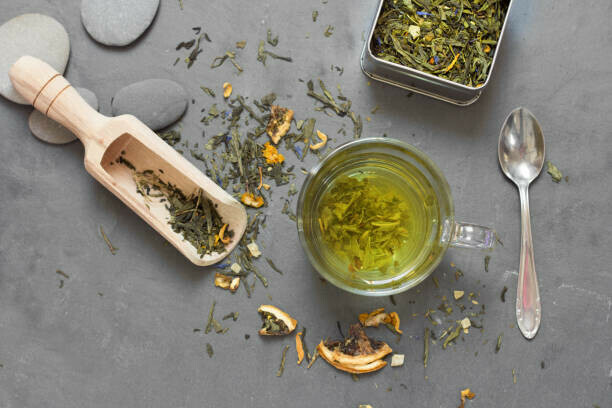
Beyond its ability to prevent diseases, Green Tea is also recognized for its favorable impact on metabolism and weight reduction. The catechins found in Green Tea, especially epigallocatechin gallate (EGCG), have been shown to boost metabolic rate and encourage fat burning. Consuming green tea can assist your body in efficiently burning calories, which is beneficial for weight management. Research has indicated that combining Green Tea with physical activity enhances these effects, resulting in more significant weight loss outcomes. Integrating Green Tea into your daily regimen could be a straightforward and practical approach for individuals seeking to shed or maintain a healthy weight.
The calming effects of green tea can alleviate stress, improve cognitive function, and benefit overall health. The amino acid L-theanine, abundant in Green Tea, promotes relaxation without inducing drowsiness. It achieves this by boosting the production of soothing neurotransmitters, such as serotonin and dopamine, which help elevate mood and reduce anxiety. Furthermore, L-theanine has been proven to enhance alpha brain wave activity, leading to improved concentration and mental clarity. Green Tea is an excellent choice for individuals looking for a natural way to manage stress and improve cognitive abilities.

Incorporating Green Tea into your everyday schedule can provide a holistic method to wellness, tackling your physical and mental well-being. Whether you aim to increase your intake of antioxidants, elevate your metabolic rate, or find a moment of tranquility in a busy day, Green Tea emerges as a versatile and advantageous choice. Its extensive history, combined with its scientifically supported health advantages, renders Green Tea a timeless beverage that continues to bolster and enrich lives worldwide. Therefore, brew yourself a cup and begin reaping the profound benefits of this remarkable tea.
Exploring the Potent Powers of Matcha
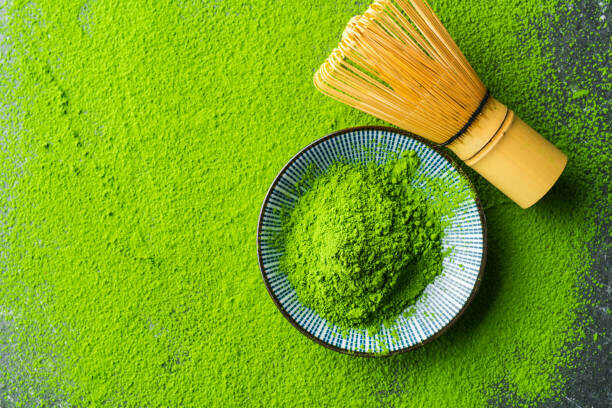
Matcha, a bright green tea powder, is highly respected for its distinct taste and its potent health advantages. One of its notable qualities is its high content of epigallocatechin gallate (EGCG), a potent catechin known for its various health effects. EGCG in Matcha has been proven to possess robust antioxidant properties, which help shield cells from damage caused by free radicals. Maintaining this safeguard is crucial for reducing the likelihood of developing long-term illnesses like heart disease, cancer, and diabetes. Additionally, EGCG enhances metabolism and promotes fat oxidation, making Matcha an effective aid in weight management and overall metabolic health.
Another exceptional element of Matcha is the amino acid L-theanine, which contributes to its distinctive calming yet invigorating effects. In contrast to other caffeinated beverages that can lead to nervousness and anxiety, Matcha offers a balanced and sustained energy lift. L-theanine promotes relaxation without inducing drowsiness by boosting neurotransmitters like serotonin and dopamine. This results in improved mood, better focus, and a feeling of calm alertness. The presence of L-theanine and caffeine in Matcha results in a serene and attentive state, making it an excellent option for boosting mental understanding and effectiveness.
Matcha also plays a significant part in detoxification and immune support. Matcha’s vibrant green color is due to its high levels of chlorophyll, which also contribute to its detoxifying properties. Chlorophyll aids the body in eliminating harmful toxins and supporting liver function, promoting overall detoxification. Additionally, Matcha contains vitamins, minerals, and antioxidants that bolster the immune system. Regular consumption of Matcha can enhance the body’s natural defenses, helping to fend off infections and illnesses. Its capacity to lower inflammation and boost the body’s ability to combat pathogens improves immune health.
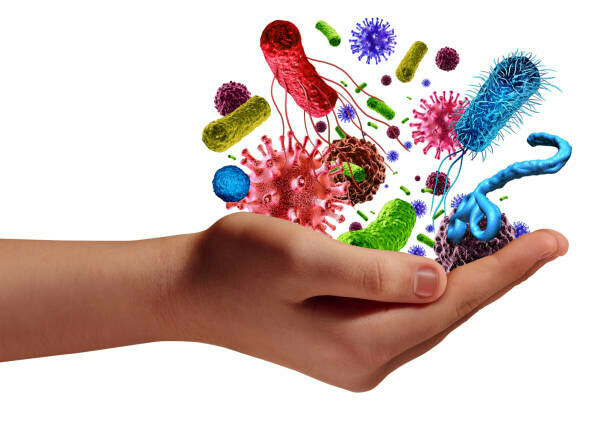
Integrating Matcha into your daily schedule can deliver numerous health advantages, from potent antioxidants and boosted metabolism to enhanced mental clarity and immune system reinforcement. Whether sipped as a classic tea, mixed into smoothies, or incorporated into cooking, Matcha’s potent attributes render it a flexible and valuable supplement to any health routine. Embrace the age-old practice of Matcha and experience the comprehensive benefits it provides for both the body and mind.
Comparative Analysis: Matcha vs. Green Tea in Daily Life
When deciding between Matcha and Green Tea for your daily routine, several practical factors come into play. Availability is one of the first things to consider. Green Tea is readily accessible in different formats, including loose leaves or tea bags, which makes it a convenient option for many individuals. In contrast, Matcha, though increasingly popular, is mainly found in specialty stores or online, making it less readily accessible. Despite this, Matcha’s distinct health benefits and unique flavor profile might make the extra effort worthwhile.
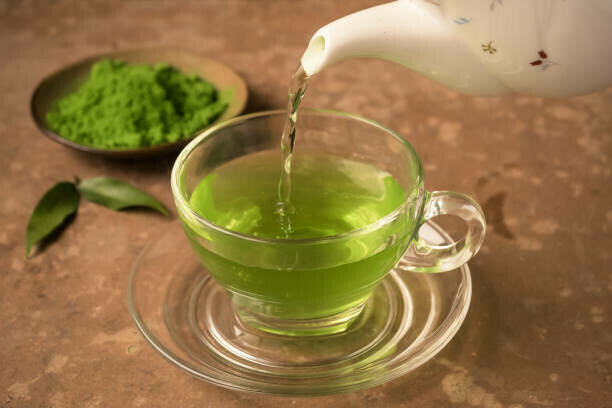
Preparation time is another critical consideration. Green Tea is relatively quick and simple to prepare; just steep the leaves or tea bag in hot water for a few minutes, and it’s good to go. On the other hand, Matcha requires a bit more effort. The traditional method involves sifting the powder, adding hot water, and whisking it vigorously until frothy. While this process can be a soothing ritual, it does take a bit more time and practice to master. For individuals with busy schedules, the ease of preparing Green Tea might be more appealing.

Cost is also a significant factor when choosing between these two teas. Generally, Green Tea is more economical, especially when bought in bulk or in tea bag form. Due to its labor-intensive production process and higher nutrient concentration, Matcha tends to be more costly. Nevertheless, its health benefits and unique experience can justify the higher price for many tea enthusiasts.
Incorporating Matcha and Green Tea into your diet can be both enjoyable and advantageous. Green Tea can be a revitalizing beverage enjoyed hot or cold and pairs well with meals or snacks. With its versatile powder form, Matcha can be incorporated into smoothies, lattes, baked goods, and even savory dishes. This flexibility allows for imaginative and delicious ways to enjoy its health benefits.
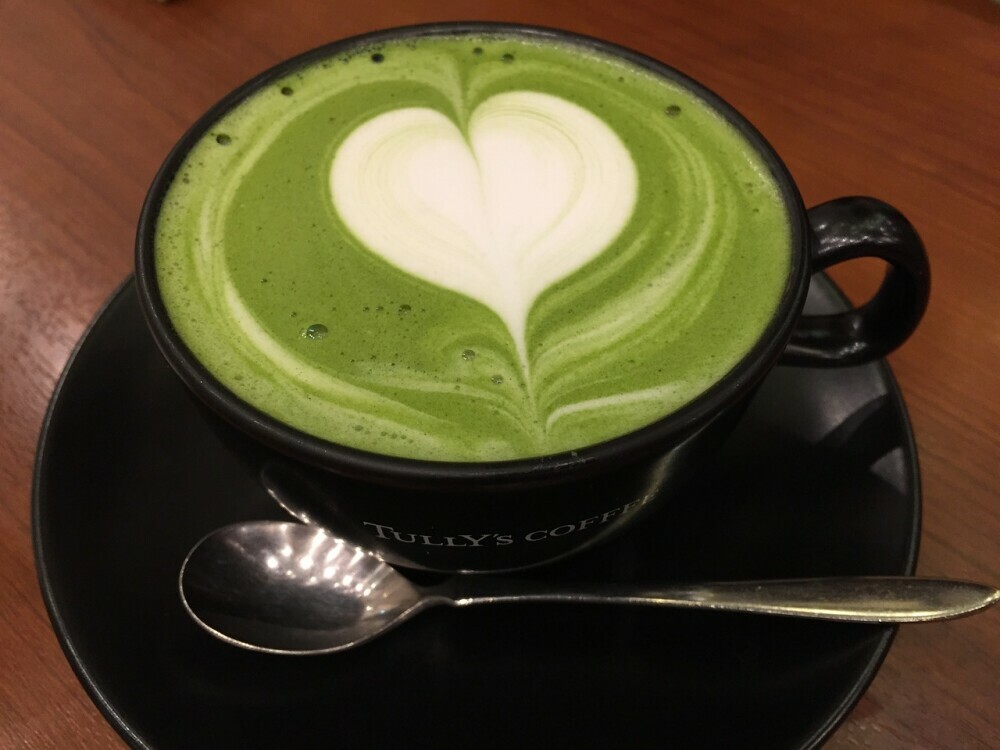
Health recommendations advise moderate consumption of both teas to maximize their benefits. Green tea is generally suggested to be consumed in 3-5 cups per day, offering a balanced intake of antioxidants without excessive caffeine. Matcha, being more concentrated, is best enjoyed in smaller quantities, typically 1-2 cups daily. This ensures that you receive its potent health benefits without overindulging.
To summarize, both Matcha and Green Tea offer distinct benefits that can enhance your daily life. Choosing the most appropriate option for your daily life involves considering factors like convenience, time needed for preparation, and price. Integrating these teas into your daily intake can offer various health advantages, thus making them a beneficial enhancement to your overall well-being.
Final Verdict: Which Should You Drink for Optimal Health?
In the debate between Matcha and Green Tea for better health, the key is to understand the distinct benefits of each and relate them to your individual lifestyle and health objectives. Both teas offer remarkable health advantages, so choosing either is a positive step for your well-being.

Green Tea, recognized for its refreshing taste and rich antioxidant content, provides various health benefits, such as better metabolism, improved brain function, and reduced risk of chronic diseases. Its moderate caffeine gives a mild energy boost without the jittery feeling, making it suitable for daily consumption. Green Tea is also simple to prepare and widely accessible, making it convenient for those with busy schedules.
On the other hand, Matcha takes the health benefits of Green Tea to a higher level. By consuming the powdered form of the entire tea leaf, Matcha delivers a stronger concentration of antioxidants, specifically EGCG, linked to enhanced metabolism and fat burning. The abundant presence of L-theanine in Matcha fosters calm focus, amplifying concentration and mental clarity. Despite the additional preparation it necessitates, the unique encounter and health advantages it provides render it a worthwhile inclusion in your daily regimen.

Personalizing your choice between Matcha and Green Tea involves considering your lifestyle, taste preferences, and health goals. Green Tea might be the perfect choice if you want a quick and easy way to enjoy a healthy beverage throughout the day. Its light, grassy flavor is widely appreciated and can be enjoyed hot or cold. If you prefer a more concentrated source of antioxidants and a unique, earthy taste and don’t mind the extra preparation, Matcha could be your preference.
Experts often express their views on the benefits of both teas, with many physicians and nutritionists suggesting them as part of a healthy diet. Nutrition expert Dr. Susan Brown stresses that Green Tea and Matcha can significantly contribute to overall health. “Green Tea is excellent for its widespread availability and ease of use, while Matcha provides a more concentrated nutrient profile for those seeking an additional health boost,” she remarks. Wellness physician Dr. Michael Harper adds, “Choosing between Matcha and Green Tea can depend on individual health goals. Matcha’s higher antioxidant content makes it great for detoxification, while Green Tea’s moderate caffeine is ideal for consistent energy.”
In conclusion, whether you select Green Tea or Matcha, you are making a valuable addition to your diet. Both teas offer unique health benefits that can support your wellness journey, making either choice a step toward improved health.
Thank you for reading my article about “Matcha Vs Green Tea Health Benefits”, and I would love to receive your comments down below, in case of any.

